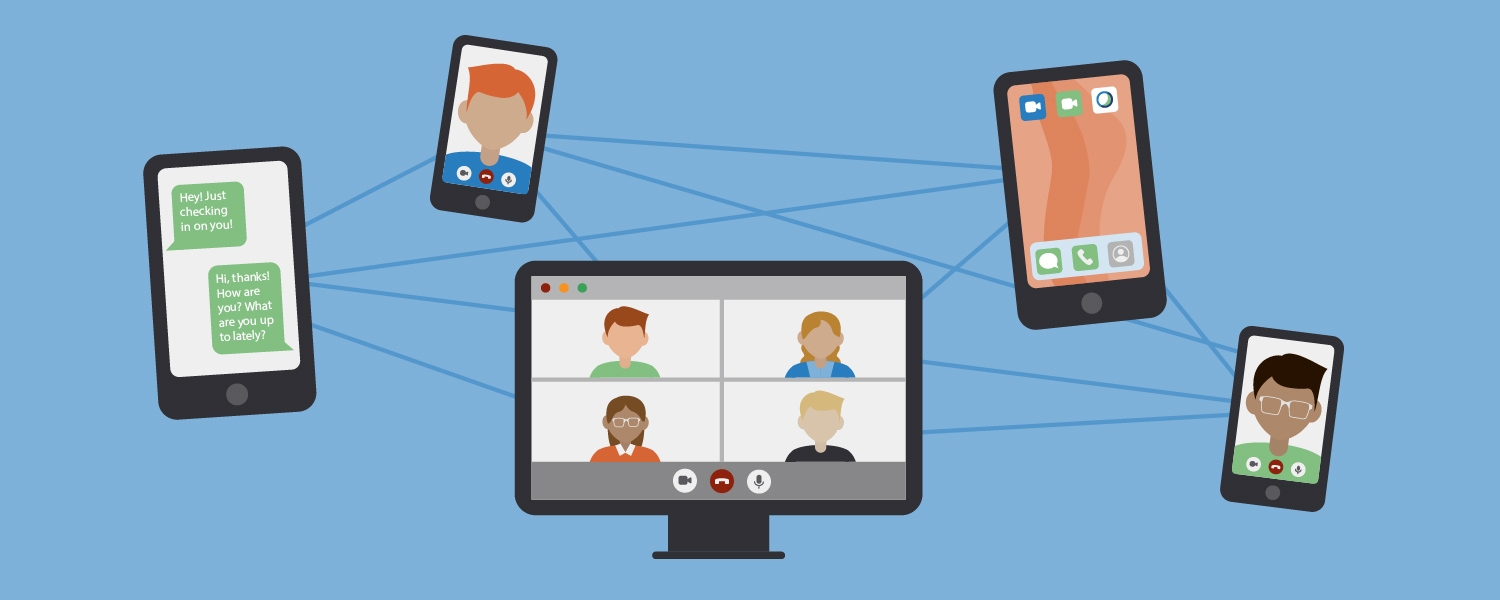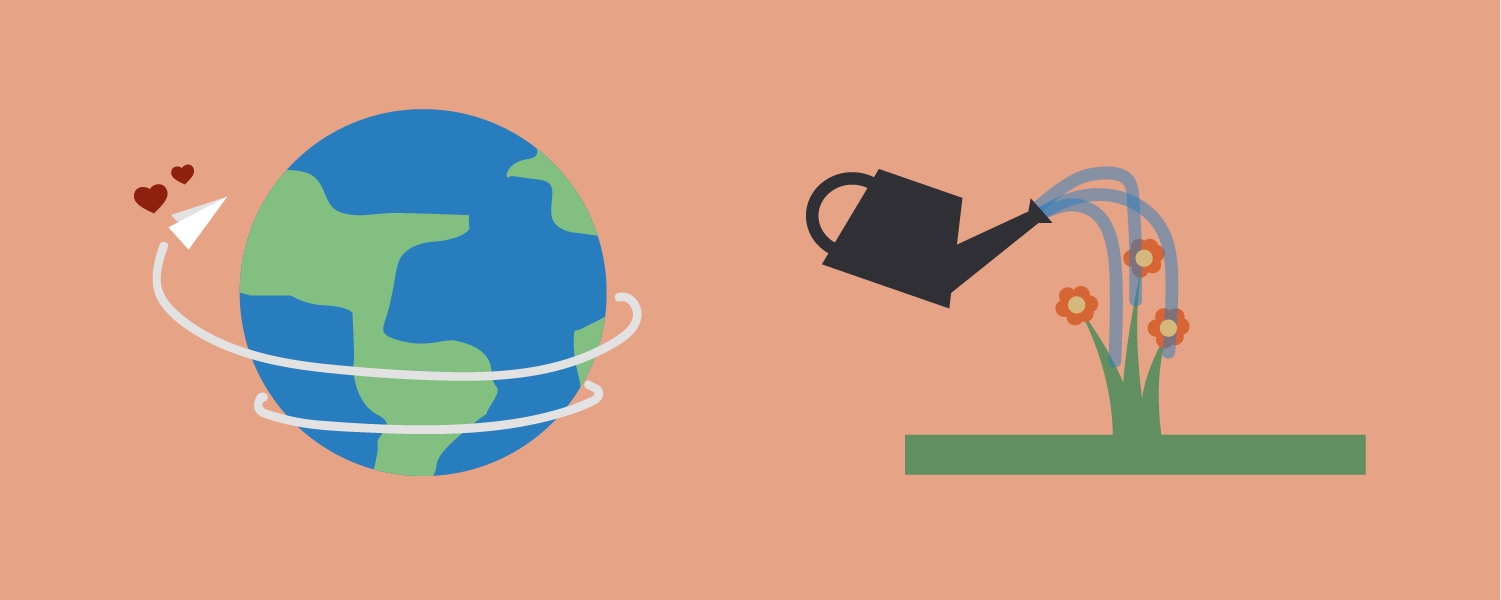Connecting with Alumni During COVID-19
Bringing alumni together during a time of social distancing

Staying connected during the COVID-19 epidemic may seem more difficult than ever. People are staying in their homes for weeks on end. Social gatherings across the globe are banned. Relationships are being put to the test. All signs point to the world being launched into a social recession—an epidemic of loneliness brought on by the virus.
The social isolation caused by coronavirus also poses a significant challenge for advancement professionals. Popular university events, such as sports games and graduation ceremonies, are cancelled. Classes in universities worldwide are moved online, and campuses have turned into ghost towns. Physical gatherings proven to increase alumni engagement, such as reunions, galas, and welcome weeks, are indefinitely postponed. In times like these, advancement professionals face a unique challenge—keeping alumni engaged through only a digital presence.

Importance of Staying Connected
However, the shift in priorities caused by the pandemic means that traditional social media strategies will no longer suffice. When faced with crisis, people turn their priorities inward, and focus on the people that mean most to them. Rather than mindlessly sharing content from people they’ve never met, people seek out digital engagement with the ones they care about most. In response, your university should reevaluate its digital strategy to provide content that meets alumni needs for genuine connection.
After all, finding ways to meaningfully engage with close friends and relatives during this time can reduce stress levels, improve sleep, and even lower the risk of infection. Furthermore, the opportunity to deepen important relationships goes beyond the positive impact of social connection on health. 74% of people believe that they will be able to spend more quality time with their loved ones as a result of self-isolation, and 49% believe that they will become closer to their partner.
However, not everyone has the opportunity to be at home with those they care about. As people are prevented from interacting face-to-face, online interactions are becoming increasingly important for social connection. As drinks with coworkers turn into Zoom calls and date nights turn into FaceTimes, people have been getting creative to maintain relationships in a time of social distancing.
Though online connection is second nature for Millennials and Gen Z-ers who grew up using smartphones, finding social support on the Internet isn’t as intuitive for the older generation, who are most at risk for the negative health effects of loneliness. As they are the age group least active on traditional social media channels, older people are unlikely to turn to social media for their socialization needs. Prioritizing self validation over social validation, older people value genuine relationships with loved ones—not “Likes” or shares.
But by shifting your university’s approach to prioritize meaningful relationships with meaningful people, you can implement a social platform that older alumni will value. For instance, creating a digital space where older alumni can share cherished stories and fond memories with those they care about will foster reminiscence and the positive benefits of nostalgia, both of which are proven to decrease cortisol levels and boost mood. By creating a community in which alumni can share heartfelt, long-form content, you can help older alumni stay just as connected as their younger counterparts.

Opportunities for Altruism
However, the impact of coronavirus has a silver lining. Amidst the stress and worry, the crisis has also bred countless touching stories of people helping their community. From helping elderly people with their grocery shopping to sharing precious supplies with neighbors, people around the world have shown that even a pandemic can’t get in the way of their shared humanity.
Moreover, such acts of altruism have proven to have benefits beyond that “feel-good” sensation of helping others. Studies have shown that helping others can help prolong life, lower blood pressure, and reduce dangerous levels of cortisol. In times of stress and worry, being kind to others makes people more resilient to negative events—and just flat-out happier.
Though the COVID-19 epidemic may be drastically changing your university’s operations, it also presents an opportunity to bring your alumni closer together through shared acts of kindness. Organizing a donation drive for fellow alumni in need, offering opportunities for alumni to volunteer remotely, and creating an online space for alumni to share advice and support can be great ways to emphasize the power of your university’s community.
By providing opportunities for alumni to do good, your university can help graduates while strengthening its network. While not able to physically gather, alumni can connect over shared struggles and experiences online, and use the university’s network for guidance and reassurance. Not only will your alumni foster stronger ties with your university, but they will also boost their dopamine levels in the process.
Why Facebook Won’t Suffice
Though some universities may already use existing social media platforms, such as Facebook, to engage alumni, these surface level strategies aren’t enough to support your wide range of alumni. Though younger alumni may be eager to maintain their active social life on the web, older alumni will have more on their mind than viewing strangers’ posts. As older people are more at risk for the virus, the uncertainty of the current situation will lead them to focus on reflecting on their life and reconsidering their priorities.
This shift isn’t new—anyone who has lived through a crisis situation, whether it be the 9/11 or the stock market crash, knows that self reflection is one of the most effective coping mechanisms for stressful times. In overwhelming or frightening moments, the contemplation of core values and goals can significantly reduce negative emotions.
For this reason, your university should use social engagement to help older people look back on their life, harnessing the proven benefits of nostalgia and reminiscing. As people age, positivity bias (otherwise known as “nostalgia goggles”), causes them to remember more of their happy memories than the bad ones. Similarly, reminiscence therapy has been proven to be effective in boosting seniors’ self esteem, life satisfaction, and overall quality of life. Recalling fond memories is fundamentally beneficial for older alumni, and your university should provide a digital outlet for that reminiscence.
These positive psychology techniques become even more paramount during the COVID-19 epidemic, when older alumni are already under significant stress. To support older alumni, your university should consider providing a social engagement that meets their unique needs—instead of adopting a “one size fits all” social media approach that leaves them out of the equation.
Fortunately, CueBack was built with these fundamental principles in mind. Recognizing that older people have different psychological needs than their younger counterparts, CueBack’s alumni engagement strategy is built upon the science of nostalgia and reminiscing. During this time, we believe that focusing on older alumni is more important than ever. By creating a social engagement platform designed to help older alumni meaningfully connect, we go far beyond Facebook in helping alumni thrive.

Moving Forward, Together
Though social distancing necessitates a reduction in social contact, it can also be a time for self-reflection and personal growth. Astronaut Scott Kelly, who spent almost a year living in the International Space Station, advocates for the power of journaling to stay in touch with your emotions during times of social isolation. To take a note from Kelly’s playbook, people can use journaling to vent their feelings, share fond memories of times past, and consider the future.
But journaling doesn’t have to be a solo activity. Online journaling can bring together the best of both worlds—writing down what’s important while staying connected with those that matter the most. By encouraging alumni to share stories and memories on an alumni platform, such as on CueBack’s Timeline, your university can provide alumni a valuable outlet in a time of need.
Similarly, alumni facing an uncertain future can use this time to invest in themselves. While recent graduates may have trouble finding jobs as a result of economic uncertainty, they can use this time to utilize mentorship or growth opportunities. Whether it be learning a marketable skill, polishing a resume, or tapping into the power of their alumni network, graduates can take this time to further their future in ways that the breakneck pace of daily life may not have allowed. By encouraging older alumni to share advice and career opportunities with their younger counterparts, your university can support graduates while emphasizing the power of its alumni network.
So, though the COVID-19 epidemic has caused a big change in university operations, that shift can be an opportunity to reevaluate your advancement priorities. Use this time to offer your alumni a platform for meaningful connection, advice, and mentorship. See how you can add value to your alumni network on CueBack today.
Please contact us if you would like to learn more about an alumni engagement platform that is based on academic research related to emotional well-being, social isolation, meaningful connection, and positivity. Built and personalized for all alumni, but specifically built to involve and add significant value to your older, higher-risk alumni.
Stay ahead of the curve with CueBack
The world of advancement is changing. Don’t get left behind. Stay ahead of the curve with insights from forward thinkers in the industry who are paving the way for tomorrow’s advancement professional leaders.